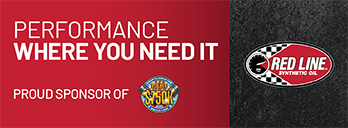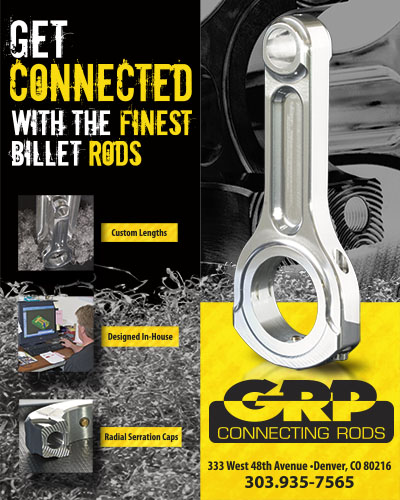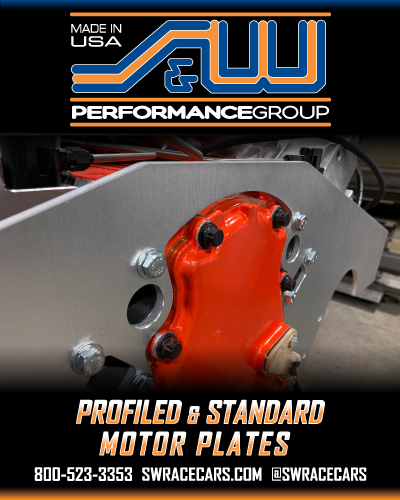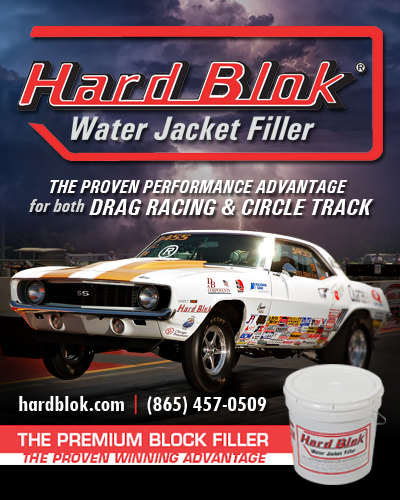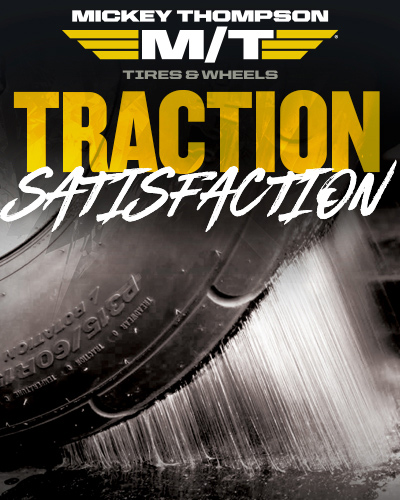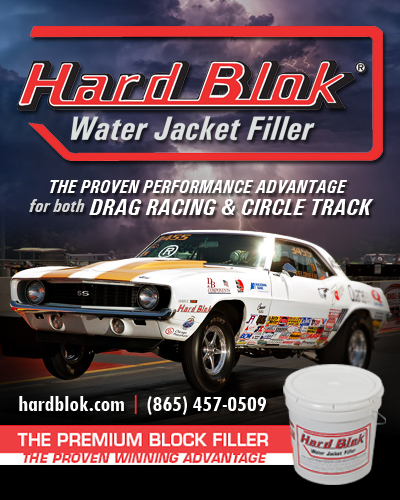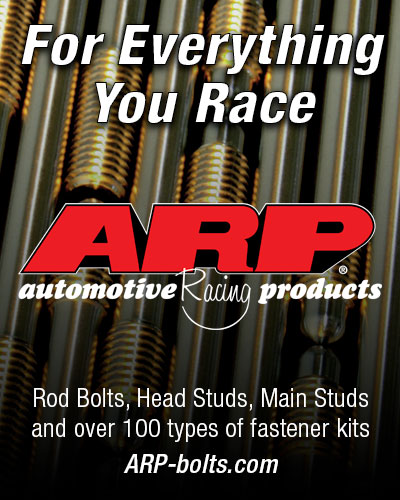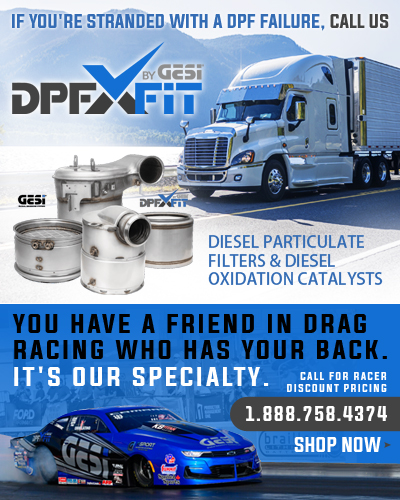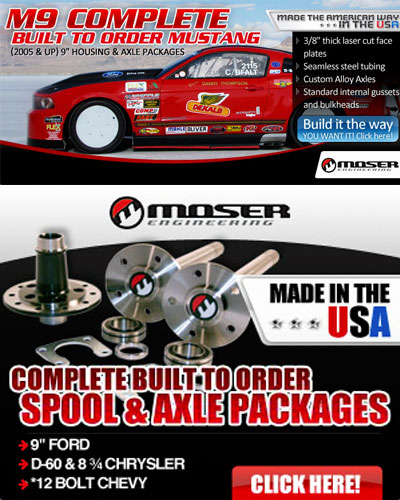RICHARD FREEMAN: TIME TO GET POSITIVE ABOUT PRO STOCK

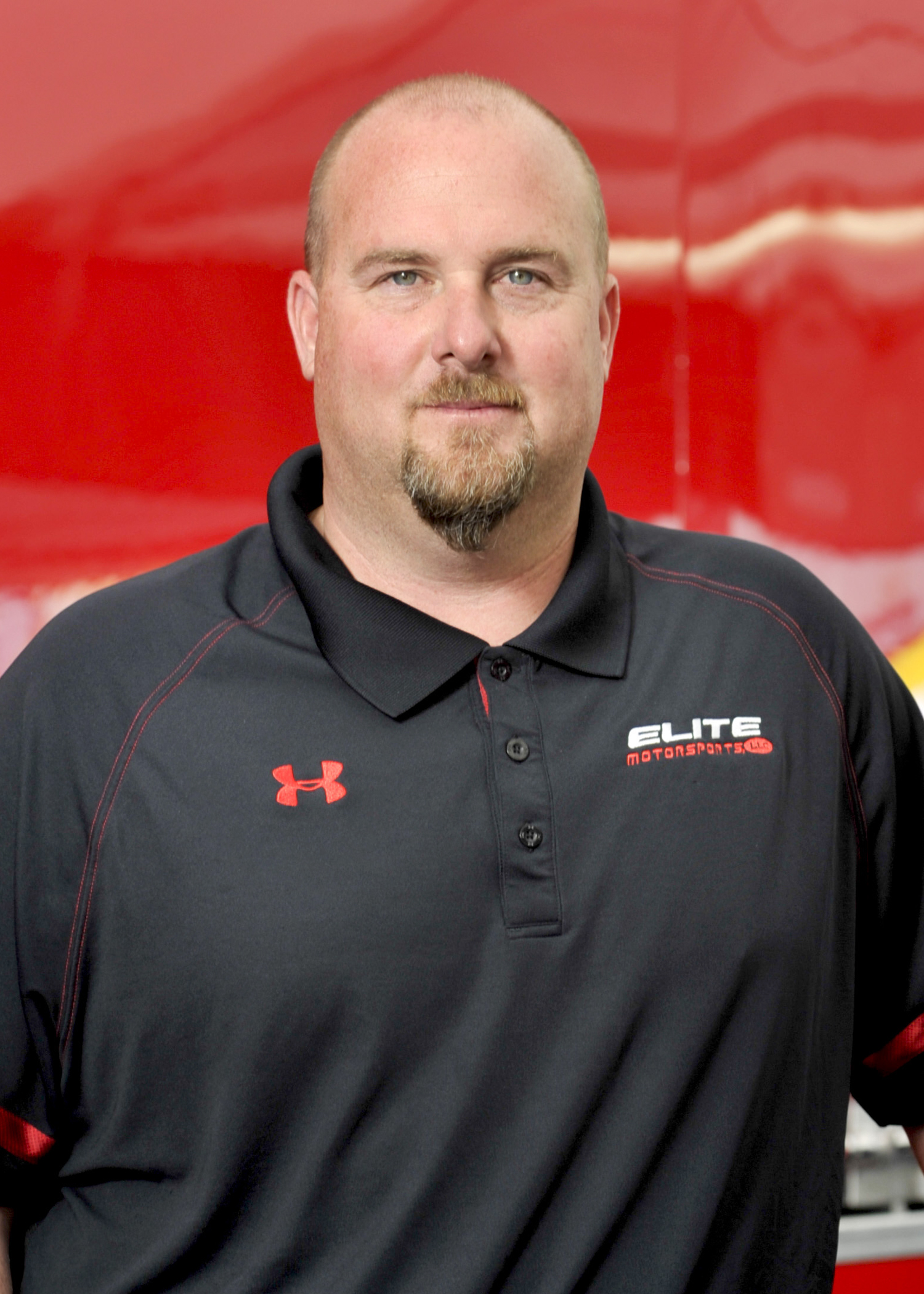 Richard Freeman will be the first to admit he is more than willing to forget the 2017 season. And, who could blame him?
Richard Freeman will be the first to admit he is more than willing to forget the 2017 season. And, who could blame him?
Freeman doesn't mince words in saying his team delivered subpar results; at least by the championship team owner's lofty standards.
However, performance has little to do with Freeman's melancholy spirit. It's the impression the drag racing community has towards Pro Stock, a class with which he's symbolically sold his soul for, which has him seeking a way to right the ship in the choppy waters of public opinion.
Freeman admits he's consumed the negativity from many media outlets and had more than his fill of social media. He even read multiple times the commentary respected, five-decade drag racing journalist Jon Asher wrote, outright saying Pro Stock is dead and calling for nothing short of a mercy killing.
"You know, I’ve read that article about ten times trying to get just the full feel of what exactly he was saying, and there’s a couple of things I think everybody needs to understand," Freeman pointed out.
Freeman believes many in drag racing are missing a key point in the so-called war on Pro Stock. Today's Pro Stock is not the same factory hot rod division fans came to love in the days of the pounds-per-cubic inch era or the 500-inch competition of the 1980s and 1990s.
"Back in the day, to use the late Bob Glidden, who you know was a pioneer of work ethic and doing things himself, from building the motors to grinding his own heads, to doing a lot of that stuff," Freeman explained. "There were no CNC machines; there was none of that type of stuff. So you know with the way things have evolved, Pro Stock in itself has evolved in the fact that it’s become more of a money sport, and you know one of the things that Mr. Asher wrote was, you know, there’s no entertainment level to it.
"Well, you know I don’t know that I can agree to that because the racing is unbelievable."
By the definition of true drag racers, Freeman believes Pro Stock is as close to the definition as it gets with close competition throughout four qualifying sessions and four elimination rounds. Very little is left to chance.
In other words, Freeman thumbs his nose at the notion Pro Stock racers are entertainers. He believes they are drag racers in every sense of the word, and who live up to the reputation of what they do.
"This deal’s real simple," Freeman said. "Just think about it. Who’s getting paid to entertain? The NHRA is. So, if they’re getting paid to entertain, then that stuff needs to flow downhill. And I’m not knocking them. They have a business to run themselves, so I don’t want to get into an argument about that, but you’ve got to understand it takes about $1.5 million per program to run my program, to run Erica or Jeg’s deal.
"When you look at the numbers and say, 'okay I’m an entertainer. I’m entertaining the fans. [NHRA] just cut our [Pro Stock] purse. We’re going to get paid $20,000 to win the race. So if you take a calculator and you take 24 races, times $20,000, tell me what that comes out to. That’s if you won every race. The last time I checked, that's still in the red."
In an unpublished adjustment to the purse, NHRA reportedly took $1,000 per round won and the winner, instead of getting the standard $25,000 has been reduced to $20,000. The money taken away is said to be going into the Top Fuel purse to fund the 17th and 18th entries.
Pro Stock in 2017 was a much different flavor than two seasons ago when NHRA first mandated electronic fuel injection, and KB Racing drivers Greg Anderson, Jason Line and Bo Butner dominated the winner's circle.
This season's scoreboard featured nine different winners in 24 events and delivered a first-time world champion in Butner, who won the title on the final run of the season. Additionally, members of the media selected Pro Stock driver Tanner Gray as the NHRA's Rookie of the Year.
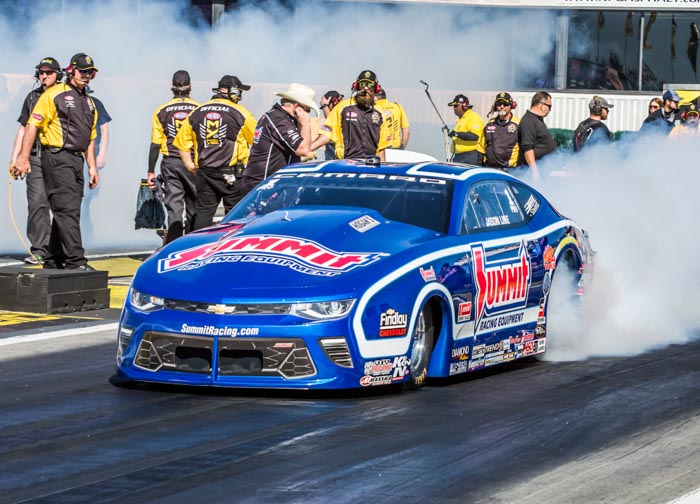
"Today, sponsorship has gone from the word sponsorship to a marketing partner. The people that I’m involved with that are involved with my program; they get something back for being a part of my program. I can name them, or you can look at my car and see that. And that’s the avenue that I decided to go.
"Don Schumacher, he’s a genius at it. Jump over the fence and go to NASCAR, Paul Menard, a genius at it. He uses his footprint to take his vendors to the table. So, I guess in whole, Pro Stock, because that’s what I’m involved in, just needs a little bit of love. By saying that, we, as competitors, people that are involved in it, have to change the way we do things or Mr. Asher will be correct, and it will die. But it will not die from the things that he says is going on."
It's these kinds of intangibles which has Freeman wondering what else does the class have to do?
Freeman understands the lack of diversity in car styles doesn't help the cause. A lot of the one-dimensionality with an overabundance has a lot to do with the lack of manufacturer support across the table. And while he's not trying to point the finger at anyone, Freeman feels he's merely stating the obvious.
"I think it’s a deal where the manufacturers and maybe NHRA as far as their policing goes, have not done exactly the best job, and merely resigned to the philosophy, ‘Hey, it’s not broke, let’s don’t mess with it," Freeman explained. "You know, everybody says, ‘Well, fuel injection should have been part of the program ten years ago."
"Maybe it should have been, but it wasn’t, so why even say that? Why talk about it? Because it doesn’t matter. What we’ve got to do is change it from today forward."
Freeman said this was a large catalyst for him and his fellow Pro Stock racers approaching NHRA with the idea of allowing any engine within any approved body style. He understands the need for a Pro Stock division which doesn't appear to be Pro Camaro eliminator.
In a recent ARP Question of the Week poll at CompetitionPlus.com, readers would like to see Mustangs and Challengers in the mix. This move, Freeman admits, is a temporary fix to a much larger issue.
First and foremost, Freeman believes, developing a sustainable and reasonably affordable engine platform should be priority No. 1 for the near future.
Whatever the solution, Freeman is adamant the engine must remain a Pro Stock signature item.
"When I say that, a cylinder head that somebody can call, and whoever it may be, a third party, can get a cylinder head that everybody has to run, a part number, for an engine a lot like NASCAR has done," Freeman declared.
In other words, Freeman believes, looking towards the Factory Stock Showdown model can be a mirage in the affordable drag racing desert.
"It’s not going to be cheaper, regardless of what anybody thinks," Freeman counsels.
Freeman should know because of his involvement in a Factory Stock Showdown entry, which he says has already $300,000 tied up in just the car and the engine. While there appears to be an abundance of Factory Showdown type cars in existence, making this platform the new Pro Stock could be just as detrimental to this style of drag racing and making Pro Mod the new Pro Stock.
"What happens when the factories decide they don’t want to do that anymore?" Freeman asks. "And it’s the same thing that we have right now. So as long as the factories are building them cars, and they’re supporting it, yeah that’s fine and dandy. But there will be a day when they don’t; when they quit selling them, and it’s already happening."
Freeman cut his teeth in drag racing campaigning high-end Comp Eliminator entries before making a move over into IHRA's Mountain Motor Pro Stock. The IHRA program began to waver, and Freeman decided it was time to give NHRA Pro Stock a run.
It didn't take him long to realize is the new kid on the block in the shark-like infested waters of 500-inch Pro Stock didn't offer much regarding new entries. In other words, the experience could be along the lines of baby sea turtles making their bid to survive in the ocean.
"Today, unless you have your own engine program, or have the means to lease, like a Bo Butner, a Skillman, Pro Stock is out of reach," Freeman explained.
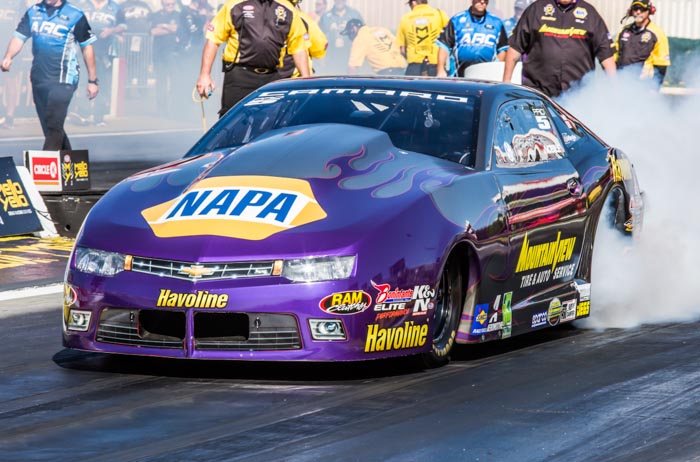
"We, Elite Performance, my guys here at the engine shop, and my business, we want to make sure that people that have an interest at least have an opportunity to discuss it," Freeman explained. "And so we’re going to make it to where if people want to talk to us, they can call me, they can do whatever they want. We will give them options because there’s a lot of options out there. I would sell an engine, but me personally would tell that person that’s wanting to do it,1 that’s probably not the best avenue.
"Now, if somebody says, ‘Hey, I want to buy that motor, I want a starting place’, that’s okay. So we can do that, we can lease them an engine, we can lease them a program, they can come in and drive one of our cars. There is a whole list, a whole gamut of avenues. And to me, Bo Butner winning this year, I’ll give Greg and Jason a little kudos. Let me tell you something, they give him a vehicle, an opportunity, and he won a World Championship. So you can’t argue that fact."
"I know his deal was very reasonable, very reasonable, and so that’s some of the things that we have to change perceptions on, that needs to happen, it needs to happen ASAP.
"I just want them to know that whether it’s myself here at Elite Performance, or the Gray’s or KB, that all of us are on the same page and we’re going to make what we have available."
Freeman believes this also trickled over into the manufacturer world and led to their abstaining from fully supporting the class.
"I can tell you Dodge lost interest because it costs so much just to keep up with the three programs that are out there today doing Chevrolet stuff," Freeman said.
The freedom of choice for the engines, Freeman believes, can provide an opportunity to give safe passage into these waters. And for some of the high-end sportsman racers who have a higher investment/return ratio can get a chance to go professional racing for the same or better ratio.
"What we want people to know, whatever class they’re running, whether it be Super Stock, Stock, and they think they might have an interest in Pro Stock, is to let them know that my group will welcome them with open arms," Freeman said. "We will sell them an engine. In fact, and this is something that’s just unheard of, if somebody wanted the motor right out of Erica, Jeg [Coughlin], Vincent [Nobile], Alex Laughlin’s car, at the end of the race, they could buy it. Now there’s going to be some stipulations because we don’t want that going just anywhere, but we would sell it."
Freeman believes the costs would be reasonable in a world where the going rate on a small block Comp eliminator engine is in the $70,000 range, and a Pro Mod engine can fetch as much as $125,000.
"I would sell any of my motors for $150K," Freeman said. "I have customers I have to take care of, so I can’t sell all of them. But if there’s something that we can do in the meantime, we’ll I’ll make sure that I have the proper amount of inventory to take care of my clients that I have, we’ll make that happen.
"I’ll also say that we’re going to, I’m building a brand new trailer where you can run a car out of the right side and the left side. It’s identical on both sides. And so somebody, if they wanted to rent the entire program and wanted just nothing but to show up and drive if they wanted a Ford car, a Toyota car, it doesn’t matter, we’ll do it with our engine program. We’ll have programs, starting at $10,000 a race to lease a motor, just a motor."
At this point, Freeman believes all of the drag racing community needs to pull together because yesterday it was Modified and Pro Stock Truck, today it might be Pro Stock, and tomorrow it might be their favorite class. And, as he puts it, might fall out of favor because drag racers are doing what they're expected to do, drag race competitively.
"People just need to understand, we love our fans, and we do have fans, regardless of what people say," Freeman explained. "But it’s not just Pro Stock. It is the vast majority of all of motorsports, not just drag racing, that has taken a dramatic hit. Everybody wants to talk in circles about what fixes it, and there’s a way to fix it, and it comes with things that are green, and I call them long wheelbase hundreds.
"The fix to our problem is people pulling together, pulling the same direction and changing what has been left alone for so many years," Freeman said. "I’m not knocking fuel injection. I like fuel injection, and I was a proponent of it. And of all people, I would be the one that should be most heartbroken about it, because the last time I checked, in ’14 and ’15 I won two World Championships."
"I suffered miserably because of the move to fuel injection. But if you step back and you think about it, it’s not the fuel injection that’s done anything. It hasn’t hurt Pro Stock. We have the same amount of touring Pros as Top Fuel and Funny Car. And they just took part of our purse. Instead of cutting our qualifiers to eight cars at nine races, they said, 'okay you can run the deal we proposed to them, we’re going to run all the races but they still took money away from us. So now we’ve got another hurdle to jump."
If it's drag racing, Freeman loves it.
"I’m a fan of Top Fuel, and Funny Car, and I’ll be real honest with you, those guys, and I can speak names, people from Chad Head to Alan Johnson, to Jim Oberhofer, a lot of those guys come to the table with us and they didn’t agree with that money being funneled that way," Freeman said. "But it doesn’t matter, it’s not our playground. So again, negative media, negative PR, we need it to stop. What we need is the people, myself, yourself, Jon Asher, people that supposedly love our sport, to get behind not just Pro Stock, everyone. And let’s use Donald Trump’s saying, “Let’s make drag racing great again."
"Okay I hear what you’re saying about Pro Stock, but what about everyone else?"
"What’s happened? Well, I’ll tell you what’s happened. The costs of doing it went up, the purse money went down, and sponsors have gone down. We can talk about that again, and again, and again. Back in the day, sponsors needed that “rolling billboard."
"Today they reach ten times the people just with social media."
To sum up his message, Freeman doesn't believe Pro Stock is dead now but believes something needs to change and change right now.
"If it continues down the same path, [Asher] is exactly correct, and it is over. I believe that," Freeman said.

